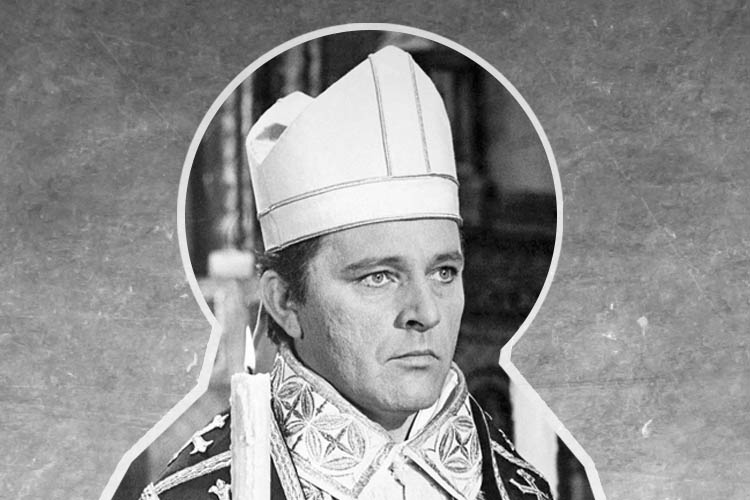Feast Day: 29 December
Close friend to the King
Thomas Becket was born in London in 1119 to the son of a merchant. After rising through the ranks as an efficient agent for the then-archbishop, he was noted by King Henry II. When the role of Lord Chancellor, one of the highest roles in politics right up to this day, became vacant, Henry II gave the position to Becket.
It was in this role that St Thomas became very close to the King and they became dear friends. They often had large and extravagant parties together and living for excess with food, women and wealth. King Henry even sent his son, Henry, to live in Becket’s household. The younger Henry was reported to have said Becket showed him more fatherly love in a day than his father did for his entire life.
In his role as Lord Chancellor, St Thomas Becket was tasked with ensuring the King received as much money as he could from taxes and that the king’s grip on power got ever more secure. It was a role he flourished in, much to the harm of the Church and local nobles.
So successful was he in these endeavours, and close to Henry II as a friend, that when the Archbishop of Canterbury died, Henry II decided to appoint Becket as the new Archbishop so that the King would be able to force the Church to do his will even more.
A transformed heart
Once appointed to the role, Thomas Becket had a deeply spiritual transformation and, as a result, transformed himself from a pleasure-loving courtier into a serious, simply-dressed cleric. The king and his archbishop’s friendship was put under strain when it became clear that Becket would now stand up for the Church in its disagreements with the king. In 1164, realising the extent of Henry’s displeasure and fearing imprisonment, Becket fled into exile in France, and remained in exile for several years. He returned in 1170 only after the pope had secured his safety with the king.
Back in England, Becket continued to defend the Church from the king’s ambitions. In his frustration and anger, King Henry II is reported to have ranted about the archbishop and said the famous phrase, “Who will rid me of this troublesome priest?” This was interpreted by four knights as a royal command and, seeking to win the king’s favour, they set out to kill the archbishop.
The assassination
Several contemporary accounts of what happened next exist; of particular note is that of Edward Grim, who was himself wounded in the attack. This is part of the account from Edward Grim:
The wicked knight leapt suddenly upon him, cutting off the top of the crown which the unction of sacred chrism had dedicated to God. Next he received a second blow on the head, but still he stood firm and immovable. At the third blow he fell on his knees and elbows, offering himself a living sacrifice, and saying in a low voice, “For the name of Jesus and the protection of the Church, I am ready to embrace death.” But the third knight inflicted a terrible wound as he lay prostrate. By this stroke, the crown of his head was separated from the head in such a way that the blood white with the brain, and the brain no less red from the blood, dyed the floor of the cathedral. The same clerk who had entered with the knights placed his foot on the neck of the holy priest and precious martyr, and, horrible to relate, scattered the brains and blood about the pavements, crying to the others, ‘Let us away, knights; this fellow will arise no more.’
Why is Thomas Becket inspiring
A reflection from someone in our young Catholic community
Saint Thomas is inspiring in almost every area of his life. Even before he started living for God, the fact that he was able to rise to the rank of Lord Chancellor after coming from a reasonably low-ranking position is a real testament to his abilities as a negotiator and administrator.
While that’s commendable, what is even more inspiring is he was willing to give up all this hard-earned wealth and luxury to live a simple life for God and defend the Church. This is brought to a climax when he eventually becomes martyred for his opposition. It shows the value of being with God is so great that power, wealth, pleasure and honour pale in contrast.
Prayer
O God, for the sake of whose Church the glorious Bishop Thomas fell by the sword of ungodly men: grant, we beseech Thee, that all who implore his aid, may obtain the good fruit of his petition. Through our Lord Jesus Christ, Who livest and reignest with Thee in the unity of the Holy Spirit, forever and ever. Amen.
